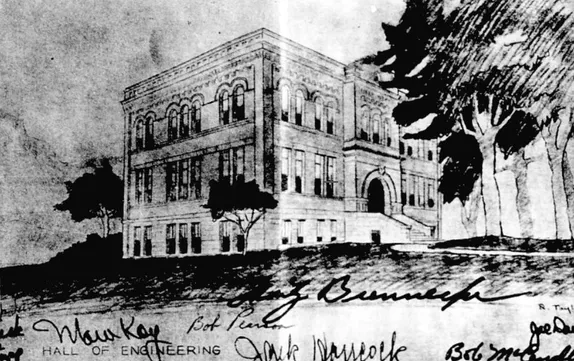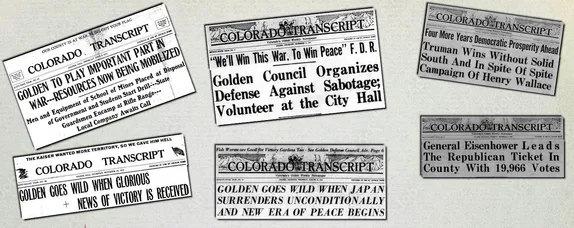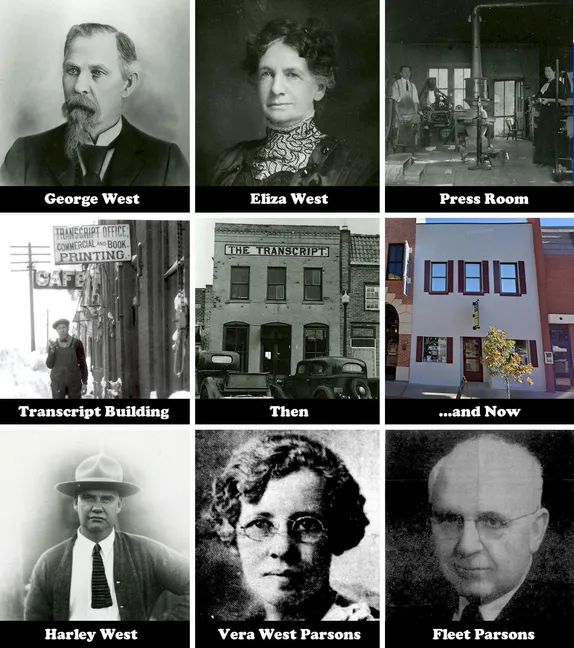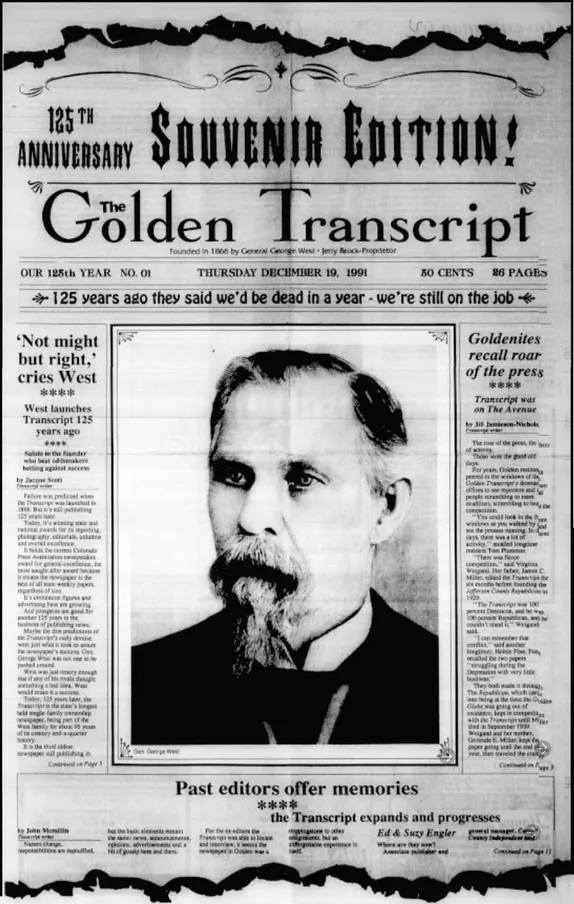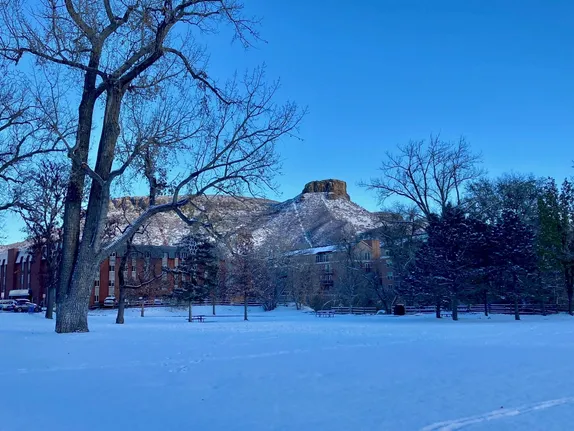Contributed by Paul Haseman
Just a year after its founding, Golden began getting its mail and many passengers via stagecoach – the Central Overland California & Pike’s Peak Express Company. Traveling on further west, the Overland trip to Blackhawk cost a steep $2.00. The first stage stop in Golden was at the Miner’s Hotel owned by John and Jeannette Ferrell (the parents of Helen Berthoud) at the corner of now 11th and Washington. Ferrell built the original Washington Ave bridge conveniently near his hotel. One early Overland stage driver was young Bill Cody. Although it is not firmly established if Cody was a Pony Express rider, he was clearly a stage driver. Cody later retraced part of his stage route by auto in a 1907 trip through Golden.
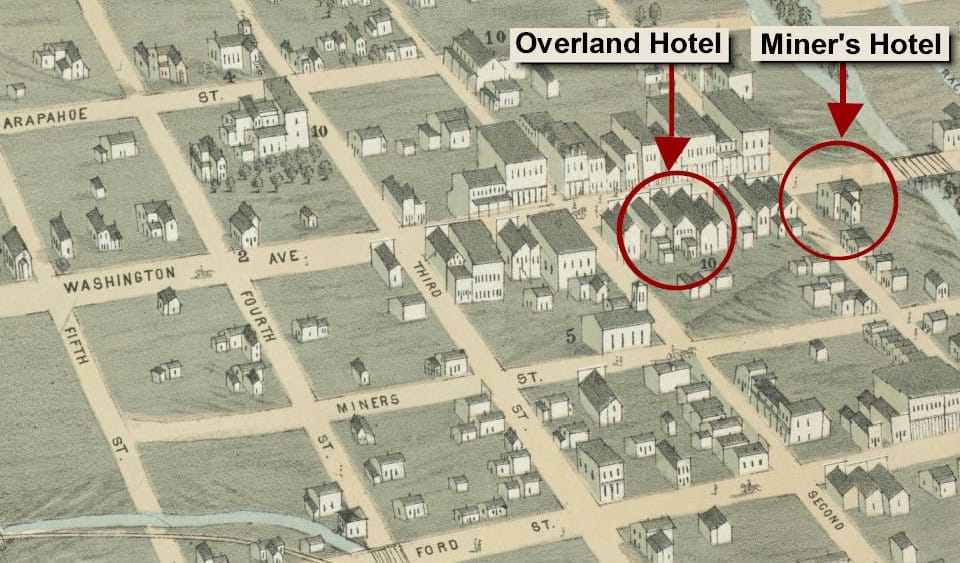
Leaving Golden, the early stage route went up Clear Creek Canyon five miles to Guy Gulch and then north up a precarious road to link up with the Golden Gate Canyon Road and then west to the gold fields in Blackhawk and Central City. W.A.H. Loveland had a hand in this route as he had a Territorial charter for the road up the canyon, which in 1872 became the route of the Colorado Central Railroad up the canyon.
Meanwhile, in May 1861 Edward Berthoud documented a new pass over the Rockies – yes, Berthoud Pass. A month latter Overland engaged him to survey a route to Salt Lake City, which he completed that July. This route became an Overland route for many years and is known today as US 40.
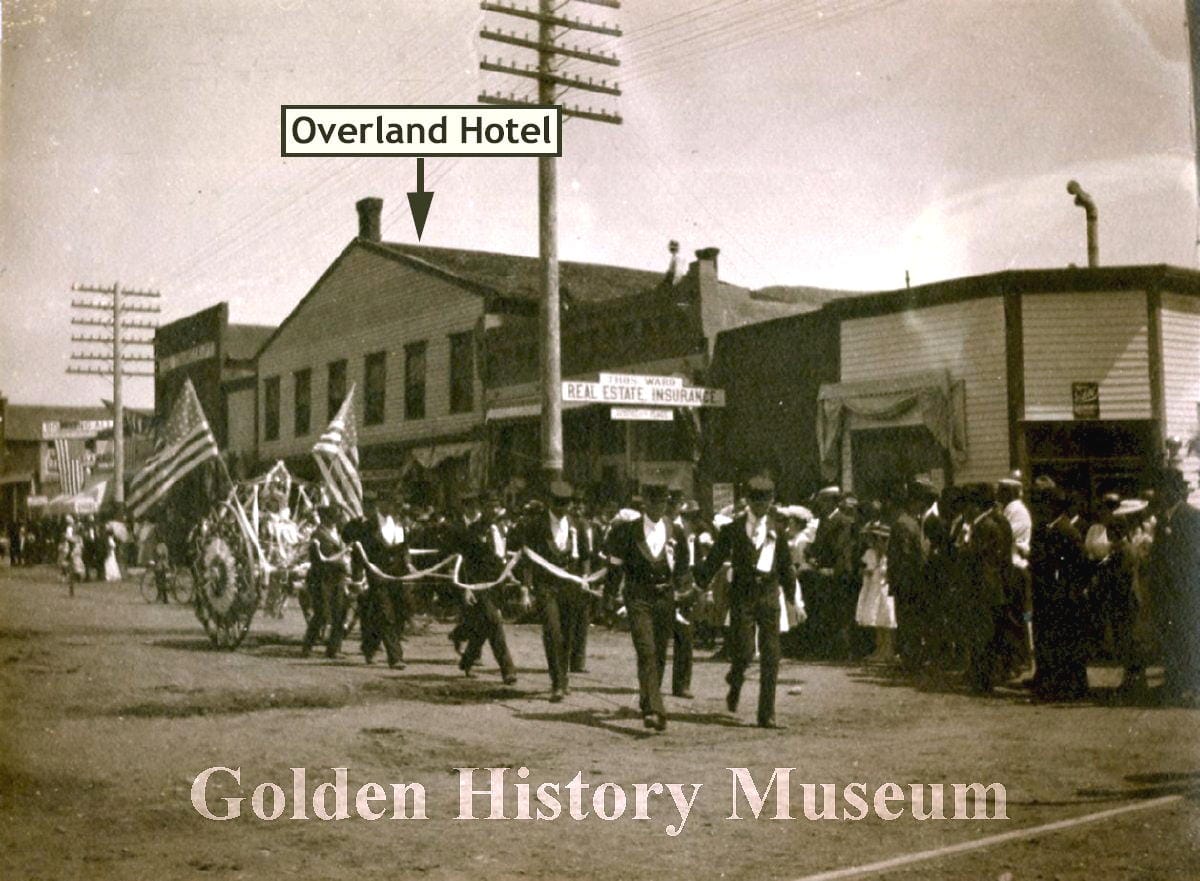
By 1867 Golden’s stage stop was the Overland House on Washington Ave and as advertised by the Colorado Transcript, the “Wells Fargo & Co’s Overland Stage Line, leaves Golden City, going east at 2 o’clock, P.M. Leave for the mountains at 8 o’clock, A.M.” Interestingly, the Overland stagecoaches originally did not carry valuables such as the miners’ gold from the mountains. Only Wells Fargo carried the gold. When Wells Fargo acquired Overland in 1867, the coaches carried any type of freight, including people, that could fit in or on top of the stagecoach.
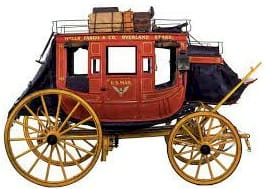
Those coaches made in Concord, N.H., had an interesting suspension. Not metal springs used in other coaches but thick bullhide leather straps. This innovation made for “smoother” riding over America’s early rough roads. Mark Twain, in his book Roughing It, recalled the stagecoach “a great swinging and swaying stage, of the most sumptuous description — an imposing cradle on wheels.” We’ll take his word for it.
Meanwhile, by the 1880’s Edward Berthoud had purchased the Overland House, known then as the Overland Hotel. Berthoud moved to his Overland Hotel in 1887 following the death of his wife, Helen. He remained there until a fall at the hotel took his life in 1910. Both are buried side by side in the Golden Cemetery.
Today we know the site of the Overland Hotel as the Buffalo Rose. An historic plaque out front commemorates the Overland Hotel and its early days as a stage stop.
Thanks to Paul Haseman for this interesting article!


